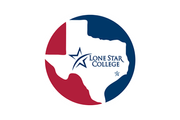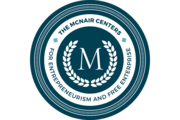![Tonar - Headshot (1)[35]](https://media.bizj.us/view/img/12646938/tonar-headshot-135*540xx1200-1605-0-28.jpg)
When Cart.com’s leadership decided to bring the e-commerce company's headquarters back to Houston, personal ties played a big part. Even after the 2021 move to Austin, all of the company’s executive management remained in the Bayou City, including CEO and co-founder Omair Tariq, who immigrated to the city from Pakistan at the age of 16.
Chief Growth Officer Remington Tonar has his own Houston connections — he previously worked at and advised companies such as The Cannon, a local incubator that would be the birthplace of Cart.com, and the biofuels startup Cemvita Corp. But Tonar said another big part of Cart.com’s return to Houston was talent-driven, just as its first departure was.
“As we were growing, we realized that we needed to go out and get more software talent, and Austin was known as a talent hub,” Tonar said. “Now we need access to Fortune-type resources — resources that a post-scale company would have access to.”
Returning to Houston allows Cart.com to leverage the city’s global connection through its airports and Port Houston. The company — which hit unicorn status, meaning it was valued at over $1 billion, earlier this year — is also looking for new headquarters space that would allow Cart.com employees from around the world to convene, though Tonar stressed the company would remain remote-first.
Could you dig a bit deeper into the growth factors the company saw while in Austin, and how those factors led Cart.com back to Houston?
We have a number of different types of offerings. We do have a suite of software that helps merchants whether they're business-to-consumer or business-to-business. So that includes listing products on social and shopping channels, selling products on Amazon, eBay, direct to consumer, etc. We have our own order management software, our own inventory and warehouse management software, and our own inventory and demand planning.
The logistics part of our business has been growing tremendously quickly. There’s more demand and less competition because we are more digitally sophisticated than our competitors. We have the DNA of both a software company and a logistics company, and that has proven really valuable in competing in this space. As we’ve made this shift, we’ve been able to attract bigger customers, and Houston’s interconnectivity became more salient to us.
Is it fair to say that worldwide economic headwinds regarding the supply chain have opened those opportunities?
The answer is yes, and sometimes we don't like to talk about this, mainly because you never want to take joy in the struggles of others, right? A lot of the current headwinds that other companies in and around the logistics space have encountered are opportunities for us because of our unique combination of pre-purchase and post-purchase [offerings], where we can actually take all that data and use it to drive efficiencies and optimization across the entire value chain. And so we were beneficiaries of the current headwinds, just as we benefited from the boom in direct-to-consumer during the Covid-19 years.
How is the company looking in terms of a potential IPO, especially as we’re closing in on the three-year mark that Omair Tariq suggested Cart.com would need to reach that milestone?
A few thoughts here. One, we’re now operating profitably, which is very exciting. It took a lot of discipline over the last year and a half. The company that we were in late 2020 and through 2021 and part of 2022 was absolutely a company that was built for revenue growth at all costs, and that fit the culture of other cities where there’s ample venture capital dollars and a focus on growth. But at the same time, the mandates of our company have turned towards looking at profitability and cash. And the culture of Houston is frankly more attuned with that operating model because of the legacy industries here. We’re still going to grow around 50% year-over-year this year on the top line, but the focus is more on the bottom line.
What are your thoughts on how Houston’s innovation ecosystem has grown?
This topic is very near and dear to me, and I’m very passionate on why it's important to continue to grow the ecosystem. Certainly, in the years since I’ve been in Houston, I’ve seen the ecosystem almost J-curve. When I moved down from New York City, I was unpleasantly surprised by the lack of infrastructure that the fourth-largest city in the country had for startups and entrepreneurs. Now we have multiple Cannon locations, the Ion, multiple national-level incubators. Omair and I and our founding investor, Jim Jacobsen, started this company at the Cannon West Houston, so in a lot of ways Cart.com is one of the most prominent examples of why we need to continue pushing for more startup infrastructure in Houston.
This interview has been edited for length and clarity.





